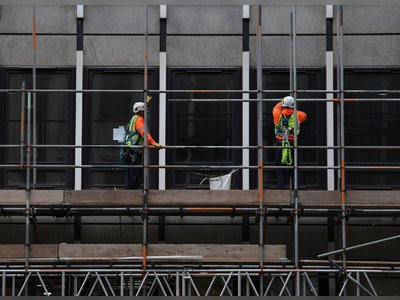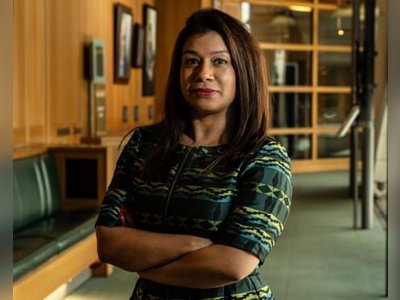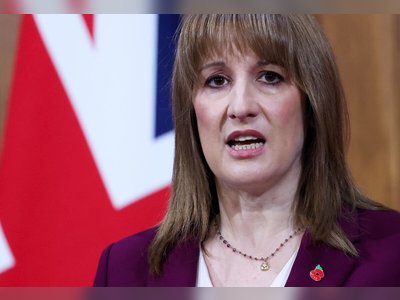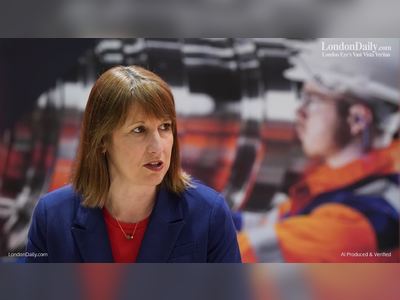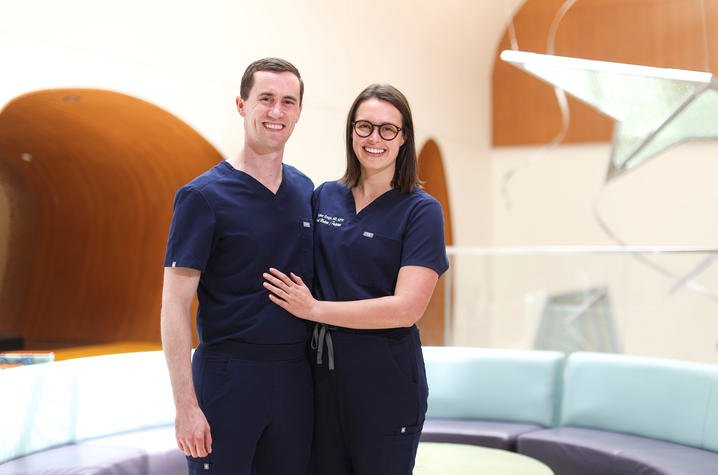
Medical Trainees Become Patients in Emotional Full-Circle Story at UK HealthCare
A married pair of University of Kentucky medical residents reflect on how surviving a traumatic crash reshaped their bond with the institution that trained them
Vince and Kaylee Gouge have spent their entire academic and professional lives at the University of Kentucky, moving from undergraduate studies to medical school and into residency at UK HealthCare.
They never expected that the hospital where they trained would one day become the place that saved their lives.
Their journey took a drastic and deeply personal turn when a drunk driver struck their car head-on, leaving both critically injured and in need of the very emergency care they had watched their colleagues deliver countless times.
The couple were rushed to UK Albert B. Chandler Hospital, where the clinicians who treated them were not strangers but the same peers, mentors and classmates who shaped their medical training.
That experience, they said, gave them a profound new understanding of the compassion, precision and resilience that drive the institution’s work.
Being on the other side of the trauma bay, they noted, revealed dimensions of UK HealthCare’s culture that physicians-in-training rarely witness firsthand — from the speed of coordinated emergency response to the emotional steadiness of colleagues handling high-stakes situations.
Their story is featured in a new episode of “UK at the Half,” a segment that airs during halftime of University of Kentucky football and basketball broadcasts.
In the interview, Vince and Kaylee explain that seeing the hospital through the eyes of patients reinforced their pride in the system that trained them and deepened their sense of responsibility as future physicians.
UK HealthCare, home to more than 10,000 clinicians and staff, serves as the state’s flagship academic medical center and its only Level 1 trauma center.
It houses Kentucky’s only National Cancer Institute-designated Comprehensive Cancer Center, a Level IV Neonatal Intensive Care Unit and a broad network of subspecialty services that treat the most complex and critically ill patients across the region.
The Gouges’ experience, they said, reflects the power of that mission in the most personal way.
As they recover and continue their training, they credit the same institution that shaped them as doctors with giving them a new perspective on healing and the purpose of their work.
Their full interview and a detailed account of their recovery journey offer a reminder of the profound human connections that form the foundation of academic medicine — and how quickly those connections become lifesaving when tragedy strikes.
They never expected that the hospital where they trained would one day become the place that saved their lives.
Their journey took a drastic and deeply personal turn when a drunk driver struck their car head-on, leaving both critically injured and in need of the very emergency care they had watched their colleagues deliver countless times.
The couple were rushed to UK Albert B. Chandler Hospital, where the clinicians who treated them were not strangers but the same peers, mentors and classmates who shaped their medical training.
That experience, they said, gave them a profound new understanding of the compassion, precision and resilience that drive the institution’s work.
Being on the other side of the trauma bay, they noted, revealed dimensions of UK HealthCare’s culture that physicians-in-training rarely witness firsthand — from the speed of coordinated emergency response to the emotional steadiness of colleagues handling high-stakes situations.
Their story is featured in a new episode of “UK at the Half,” a segment that airs during halftime of University of Kentucky football and basketball broadcasts.
In the interview, Vince and Kaylee explain that seeing the hospital through the eyes of patients reinforced their pride in the system that trained them and deepened their sense of responsibility as future physicians.
UK HealthCare, home to more than 10,000 clinicians and staff, serves as the state’s flagship academic medical center and its only Level 1 trauma center.
It houses Kentucky’s only National Cancer Institute-designated Comprehensive Cancer Center, a Level IV Neonatal Intensive Care Unit and a broad network of subspecialty services that treat the most complex and critically ill patients across the region.
The Gouges’ experience, they said, reflects the power of that mission in the most personal way.
As they recover and continue their training, they credit the same institution that shaped them as doctors with giving them a new perspective on healing and the purpose of their work.
Their full interview and a detailed account of their recovery journey offer a reminder of the profound human connections that form the foundation of academic medicine — and how quickly those connections become lifesaving when tragedy strikes.
